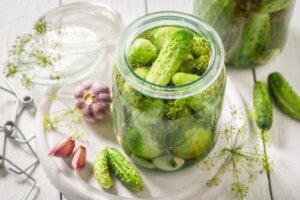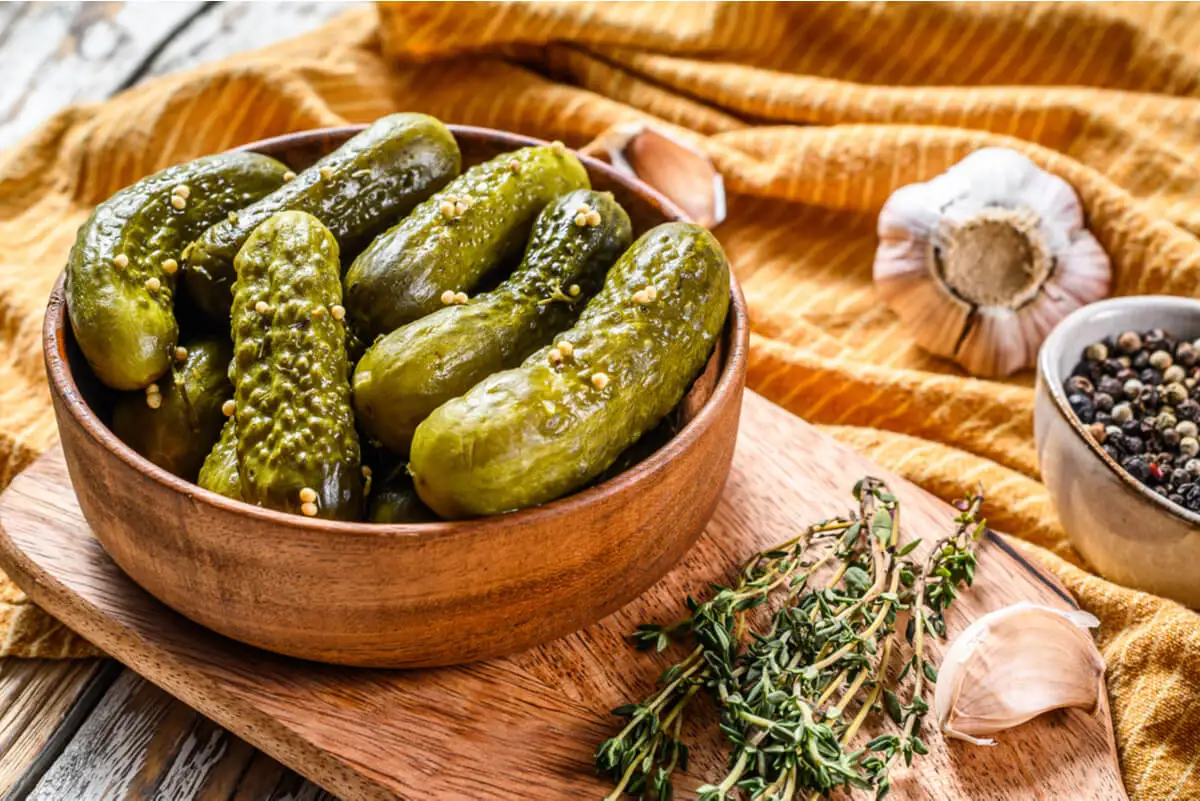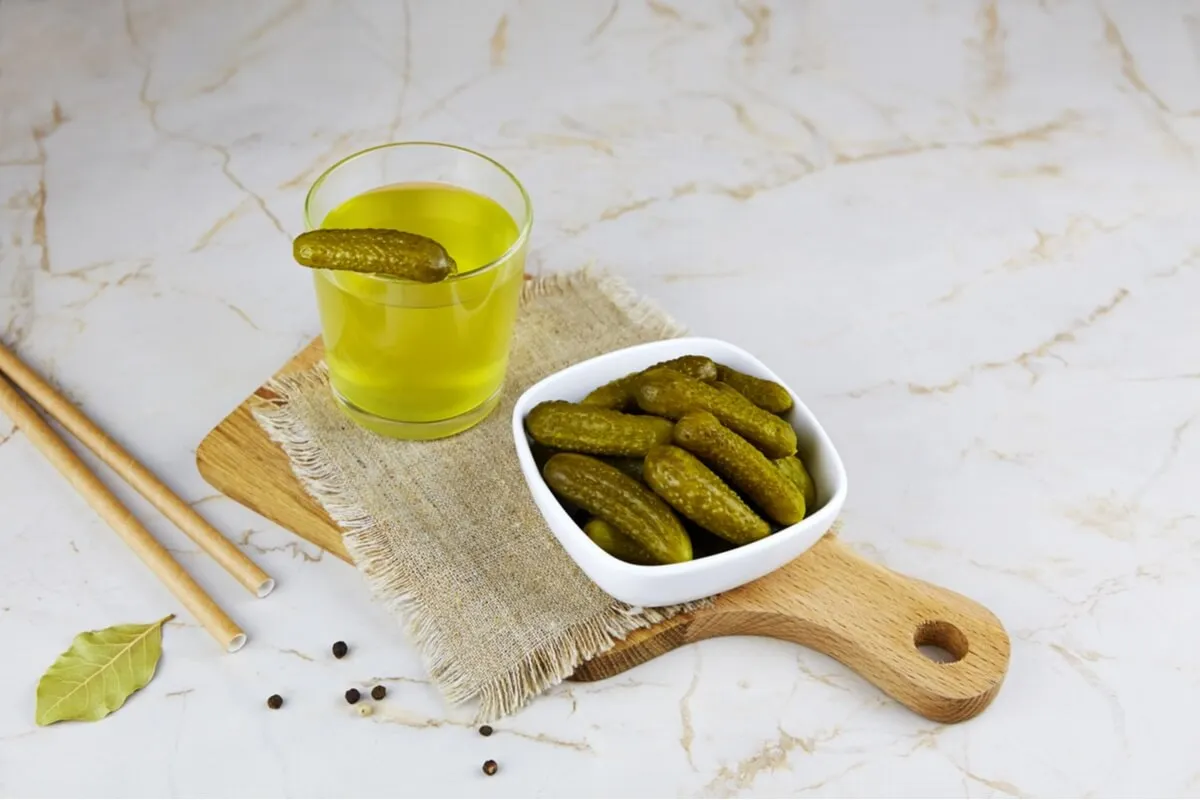Pickled Gherkins in Vinegar: Nutrients, Benefits and Preparation


Written and verified by the nutritionist Saúl Sánchez Arias
Pickled gherkins are a perfect pickle to consume at any time of the day. They’re quite filling and have a good amount of essential nutrients and quality antioxidants inside.
Read on to discover the step-by-step recipe we have for you. Prepare them and enjoy a delicious dish.
Pickles in vinegar recipe
Pickles are recommended in the context of many diets, even if you intend to lose weight. They may even be good for athletes, reducing the risk of muscle cramps.
Before we begin, it should be noted that canned foods aren’t always considered low-quality processed foods. Those made at home can provide useful nutrients, so they can be consumed frequently to take advantage of the benefits of vegetables. They’re a convenient way to include these products in the diet. In addition, they have a fairly long shelf life.

Ingredients
Nutritional value of pickled gherkins
From the point of view of nutritional value, it should be noted that pickled gherkins are low in calories. They barely provide 25 calories per 100 grams (4 oz) of product. These come mainly from sugars, with a concentration of 1 gram per 100.
As far as micronutrients are concerned, salt stands above the rest with a content of 960 mg. Also, they’re able to provide vitamin C in sufficient quantities.
However, pickles, like many other vegetables, have phytochemicals with antioxidant capacity. These elements neutralize the formation of free radicals and keep inflammation in the body under control. This effect prevents the development of certain health problems such as type 2 diabetes. The metabolism benefits from regular consumption.

You may also be interested in: Seven Slimming Properties of Apple Cider Vinegar
Benefits of pickled gherkins
First of all, it’s worth mentioning that pickled gherkins provide a significant amount of vitamin C. This element has been shown to help improve the body’s health. This element has been shown to help improve the efficiency of the immune system.
On the other hand, they’re a source of fiber. This substance increases the volume of the fecal bolus, thus causing a greater stimulation of the mechanoreceptors of the tube. According to a study published in the journal BMJ, an adequate intake of fiber helps to reduce constipation and avoid intestinal problems. At least a daily intake of 25 grams (1 oz) is recommended.
They can also provide a certain amount of probiotic bacteria. These increase the density and diversity of the microbiota in the tube. In this way, the incidence of many inflammatory pathologies is reduced and correct digestion and absorption of nutrients is ensured. There’s evidence that maintaining the microbiota in good working order is key to achieving a good state of health.
Consume homemade pickled gherkins
As you have seen, it’s easy to make homemade pickled gherkins. Few ingredients and minimum time are necessary to achieve a good result that will be preserved for a period of at least 12 months without any problem.
Pickled gherkins provide a good amount of antioxidants, necessary elements to neutralize the formation of free radicals and prevent the development of chronic and complex pathologies in the medium term.
All cited sources were thoroughly reviewed by our team to ensure their quality, reliability, currency, and validity. The bibliography of this article was considered reliable and of academic or scientific accuracy.
- Carr, A. C., & Maggini, S. (2017). Vitamin C and Immune Function. Nutrients, 9(11), 1211. https://doi.org/10.3390/nu9111211
- Tabbers, M. M., & Benninga, M. A. (2015). Constipation in children: fibre and probiotics. BMJ clinical evidence, 2015, 0303.
- Järbrink-Sehgal, E., & Andreasson, A. (2020). The gut microbiota and mental health in adults. Current opinion in neurobiology, 62, 102–114. https://doi.org/10.1016/j.conb.2020.01.016
This text is provided for informational purposes only and does not replace consultation with a professional. If in doubt, consult your specialist.








